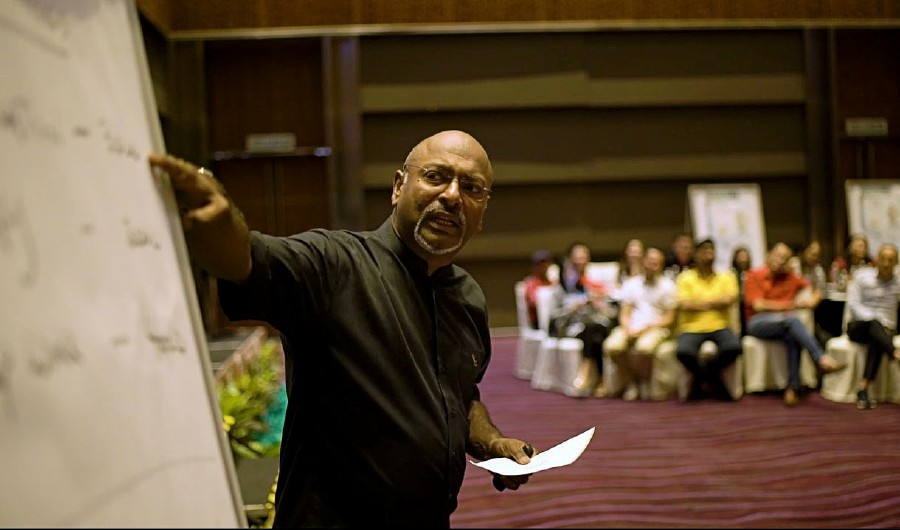In October 2021, Harvard Business Review published an insightful and far-sighted strategy by Paul Polman and Andrew Winston. Polman is a former chief executive of a global multinational consumer goods company and Winston is one of the world's leading thinkers on sustainable business.
The two of them describe a net-positive company as one that "improves well-being for everyone it impacts and at all scales – every product, every operation, every region and country, and for every stakeholder, including employees, suppliers, communities, customers, and even future generations and the planet itself."
A rather complex statement, but in short, they argue that it is just not enough to say and do the right things. Your organisation must actually have a business model that makes the world better. And if employees feel brand promises are sketchy, they are likely to walkout and openly criticize their employers.
Even big worldwide brands have infamously experienced this already.
If you are unsure whether your company has a business model that 'makes the world better', it is time to examine what generates your enterprise. Leaders have to build a purpose-driven work culture. This is where a sense of purpose determines everything that happens in your organisation.
It is so common to see companies doing something on a regular basis but we they don't have the foggiest idea of 'why' they are doing it. It is usually a case of "…I don't know, this is how we always do it."
When an operating system is in place within your company on "how we do things around here", which is purpose-driven, eventually it becomes part of your work culture matrix.
Culture really matters because perception is what generates your business.
You are only as good as stakeholders believe that you are or as your culture demonstrates. No matter what your public relations machinery screams to the world, it is your employees' actions that indicate who you really are, as an organisation.
In Malaysia, we have clear examples of this.
What is your perception of having to deal with say, a national utility company, which holds the monopoly?
In my experience, and perhaps in yours too, you can confirm that the prevalent culture is that of sanguinely getting things done, with no real sense of urgency. And no one is truly invested in solving any problem, beyond signing off with the ubiquitous "saya yang menjalankan amanah" or "I who carry out the trust".
It is a totally banal and platitudinal statement that serves no purpose for those in need.
Conversely, juxtapose this with your dealings with former national agencies that got privatized. They became Government-Linked Companies (GLCs), which have a primary commercial objective and in which the Malaysian Government has a direct controlling stake.
Here, former government employees somehow manage to light a fuse in their behinds, and can actually work with vigour. It is the mindset and culture that drives behaviour, which in turn produces results.
So, a purpose driven work culture becomes paramount in our quest to remain relevant.
In organisations that have fostered a purpose-driven work culture, employees have genuine ownership of the company's purpose. They literally are able to 'live' their company's purpose in their day-to-day operations and in their various interactions with each other, and stakeholders.
Employees who regularly have to navigate through countless obstacles remain energised by purpose. Their decisions are formed by this purpose. And their daily iterations are guided by the same.
Your team will know why they serve, who and what they serve, and how to represent brand promises.
The journey starts with the leader (CEO or MD). They must grasp and cognise how valuable work culture is, and how to set the tone so that everyone buys-in to those ideals. A leader's prime task is to explain and engender passion in an inspiring and engaging purpose.
Having done this, bosses must change, grow and evolve their organisational work culture so that every employee believes in it, and is willing to practice that purpose.
I get hired to plan and run training as well as leadership coaching programmes for so many companies that have CEOs who themselves are unclear and fuzzy about their organisation's purpose. How then can they expect their teams to deliver results for stakeholders?
These companies struggle to breakthrough beyond where they are at, because when they have a culture that doesn't follow through on their brand promises, their purpose is nullified.
Therefore, these companies simply stagnate.
As stakeholders ourselves, we have witnessed this. If culture and the brand are poorly aligned, our actual experiences will fall short of the purpose these companies portray to the world. From airline companies to restaurants, manufacturing titans to even our government, we have seen so much of this, especially over the past two years.
Ultimately, it is clear that owners, CEOs, managing directors and leaders who work on building a purpose-driven culture, are the ones who will create world-changing brands.
Shankar R. Santhiram is managing consultant and executive leadership coach at EQTD Consulting. He is also the author of the national bestseller "So, You Want To Get Promoted?
The views expressed in this article are the author's own and do not necessarily reflect those of the New Straits Times






